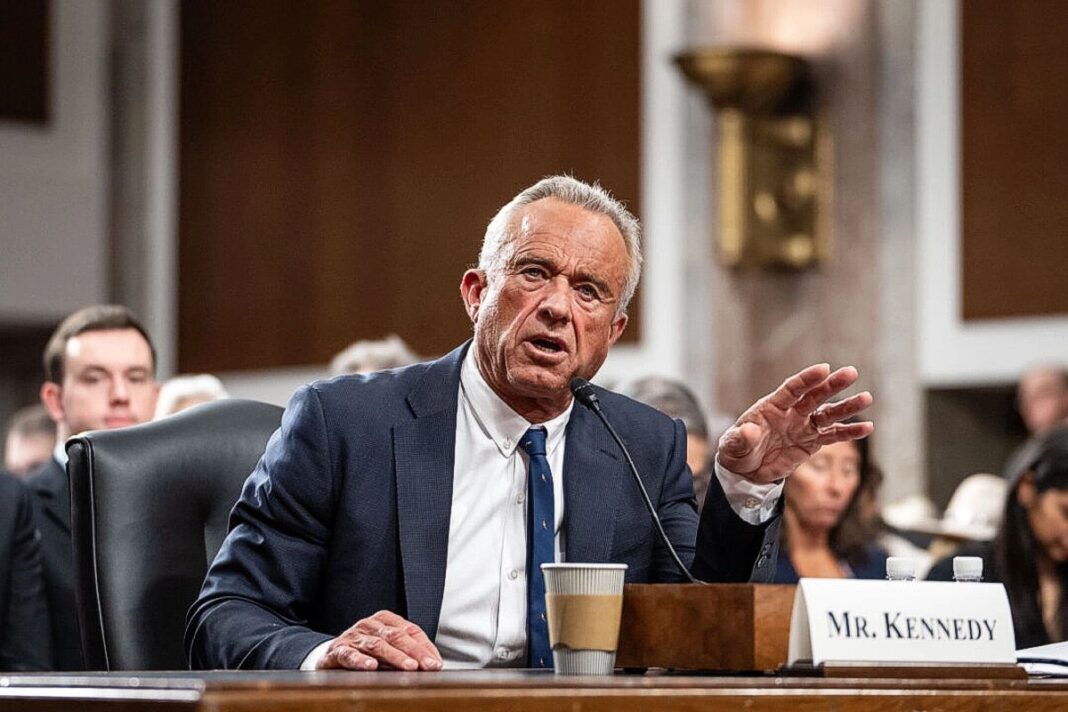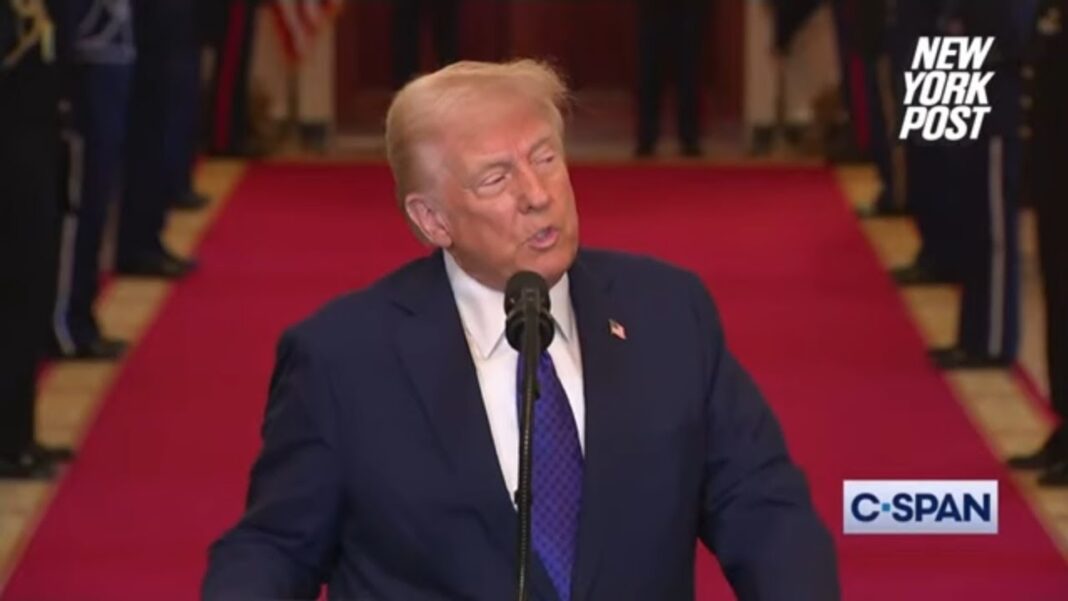
Kennedy, who has been criticized by Democrats and Republicans for his stance on vaccines and comments on abortion, needs a simple majority to gain confirmation.
Robert F. Kennedy Jr. took a step closer to becoming secretary of the Department of Health and Human Services on Feb. 4 when the Senate Finance Committee advanced his nomination to the Senate floor for a full vote with a 14-13 tally.
Criticized by Democrats for their perception of his stance on vaccines, and questioned by some Republicans who have expressed concern over his views about abortion, the former Democrat and independent presidential candidate must get a simple majority to gain confirmation.
Some Republicans, including Sen. Bill Cassidy (R-La.), had voiced their dismay over Kennedy’s comments about vaccines. Republicans such as Joni Ernst (R-Iowa) were uneasy over his views on abortion.
Republicans hold a 53–47 majority in the chamber. The full Senate vote is expected to happen next week.
Kennedy appeared before the Senate Committee on Finance on Jan. 29 for his first confirmation hearing as President Donald Trump’s nominee for secretary of the Department of Health and Human Services (HHS).
He was questioned by the Senate Committee on Health, Education, Labor, and Pensions (HELP) on Jan. 30.
At the Senate Finance Committee hearing, Kennedy entered the chamber to applause from supporters in the audience and shook hands with lawmakers before taking a seat. He received a similar reaction the next day when he appeared before the HELP committee.
Both hearings showcased a sharp division between the parties over Kennedy’s views. Most Republicans praised Kennedy for his past advocacy work and his emphasis on addressing the nation’s chronic disease epidemic, while Democrats criticized the founder of the Children’s Health Defense (CHD) for his stance on vaccine efficacy. Kennedy told the Finance Committee that he was no longer part of CHD and resigned from its board.
Fighting chronic disease, improving children’s health, and addressing corporate influence on government agencies have been vital parts of Kennedy’s platform.
If confirmed, he would head a department that manages 13 agencies, including the Centers for Disease Control and Prevention, the U.S. Food and Drug Administration (FDA), and the National Institutes of Health.








